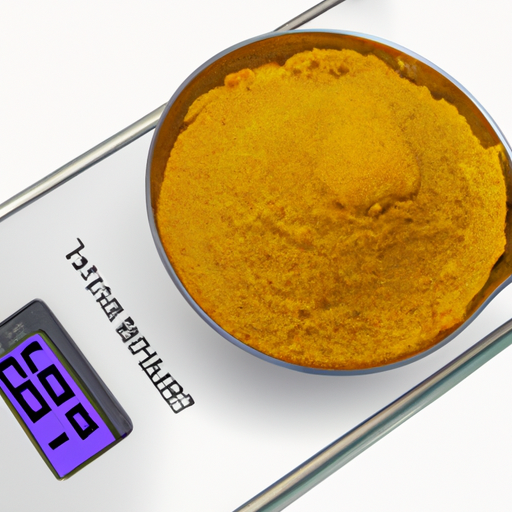I have always had a fascination with natural remedies and finding ways to enhance my health without depending on medication. Recently, I discovered the numerous health advantages of turmeric and have since begun adding it to my daily diet.
One of the easiest ways to consume turmeric is by drinking turmeric tea, which has become a daily ritual for me. In this article, I will explore the potential benefits and drawbacks of drinking turmeric tea every day.
From its anti-inflammatory properties to its potential to improve brain health, we will take a deep dive into the science behind this ancient spice. So, if you’re curious about what turmeric tea can do for your health, keep reading!
Key Takeaways
- Drinking turmeric tea every day may improve overall health and wellness.
- Regular consumption of turmeric tea may help reduce inflammation and swelling throughout the body.
- Turmeric tea may potentially reduce the risk of cancer and promote gut health.
- It is important to consume turmeric tea in moderation and stick to the recommended dosage of 500-2000mg per day to avoid gastrointestinal issues.
The Health Benefits of Turmeric
You’ll be amazed at how incorporating a daily cup of turmeric tea into your routine can improve your overall health and wellness. Turmeric is a spice commonly used in Indian cuisine, and it’s also available in the form of supplements.
It contains a compound called curcumin, which has powerful antioxidant properties that can help protect your body from damage caused by free radicals. Aside from its antioxidant properties, turmeric also has anti-inflammatory effects.
Inflammation is a natural response of the body to injury or infection, but chronic inflammation can lead to several health problems such as heart disease, diabetes, and cancer. Taking turmeric supplements or cooking with turmeric can help reduce inflammation in your body, and studies have shown that it can be as effective as some over-the-counter anti-inflammatory drugs.
This makes turmeric an excellent addition to your daily routine, especially if you want to improve your overall health and prevent chronic diseases. With that said, let’s dive into how curcumin and its anti-inflammatory properties can benefit your body.
Curcumin and Its Anti-inflammatory Properties
Although some may question the effectiveness of curcumin, research has shown its potent anti-inflammatory properties. Curcumin, the active ingredient in turmeric, has been found to inhibit the activity of inflammatory enzymes and cytokines in the body, reducing inflammation and swelling. In fact, some studies have found curcumin to be as effective as nonsteroidal anti-inflammatory drugs (NSAIDs) in reducing inflammation, without the negative side effects commonly associated with these medications.
To fully reap the anti-inflammatory benefits of curcumin, it’s important to consider factors that affect its absorption in the body. Curcumin is poorly absorbed on its own, but can be enhanced by consuming it with piperine, a compound found in black pepper. Additionally, taking curcumin with a source of fat can help with absorption. The optimal dosage of curcumin varies depending on the individual and the condition being treated, but studies have shown benefits with doses ranging from 500mg to 2000mg per day.
Moving on to the role of antioxidants in a healthy diet, it’s important to consider how these compounds can protect the body from oxidative stress and inflammation.
The Role of Antioxidants in a Healthy Diet
Don’t miss out on the incredible benefits that antioxidants can provide for your body and health. Antioxidants are substances that can help protect your cells from the damage caused by free radicals, which are molecules that can harm your body’s tissues and contribute to the development of chronic diseases.
Some of the most well-known antioxidants include vitamin C, vitamin E, and beta-carotene, but there are many other compounds that also have antioxidant properties, such as flavonoids, anthocyanins, and polyphenols.
The importance of dietary diversity cannot be overstated when it comes to getting enough antioxidants in your diet. Different foods contain different types and amounts of antioxidants, so it’s essential to consume a variety of fruits, vegetables, whole grains, and legumes to ensure that you’re getting a range of these beneficial compounds.
Additionally, oxidative stress is a major contributor to many health issues, including inflammation, heart disease, and cancer. Incorporating antioxidant-rich foods and beverages like turmeric tea into your diet can help combat this stress and promote overall health and wellbeing.
Turmeric tea can help with digestion by stimulating the production of digestive juices and enzymes, as well as reducing inflammation in the digestive tract. This can lead to improved digestion and absorption of nutrients, as well as a reduction in symptoms such as bloating, gas, and indigestion.
With its potent antioxidant properties and anti-inflammatory effects, turmeric tea is a great addition to any healthy diet.
How Turmeric Tea Can Help with Digestion
Turmeric contains curcumin, a compound that’s been shown to improve digestion and reduce inflammation in the gut, making it a beneficial addition to your diet. Drinking turmeric tea regularly can help with digestion and alleviate symptoms of digestive issues like bloating, gas, and constipation. Here are four ways turmeric tea can help promote gut health:
-
Reduces inflammation: Curcumin’s anti-inflammatory properties can help reduce inflammation in the gut, which is linked to various digestive disorders.
-
Improves gut motility: Turmeric tea can stimulate the production of digestive enzymes and bile, which can help improve gut motility and aid in the digestion of food.
-
Promotes weight loss: Turmeric tea can help promote weight loss by increasing metabolism and reducing inflammation in fat tissue.
-
Balances gut bacteria: Turmeric tea has antibacterial properties that can help balance the gut microbiome and promote the growth of beneficial bacteria.
In addition to its benefits for gut health, turmeric has also been shown to have potential benefits for brain health.
The Potential Benefits of Turmeric for Brain Health
You can potentially reap benefits for your brain health by incorporating turmeric into your diet. Studies have shown that turmeric contains a compound called curcumin, which has been found to have anti-inflammatory and antioxidant properties that may help improve brain function and cognitive performance. In fact, a study published in the Journal of Psychopharmacology found that participants who took a daily dose of curcumin showed improvements in their working memory and mood compared to those who took a placebo.
To further illustrate the potential benefits of turmeric for brain health, the following table highlights some of the studies that have been conducted on the topic:
| Study | Participants | Results |
|---|---|---|
| Aged rats study | Aged rats | Curcumin improved cognitive function and reduced oxidative damage in the brain |
| Human study | Healthy adults | Curcumin improved working memory and mood |
| Alzheimer’s study | Alzheimer’s patients | Curcumin improved cognitive function and reduced amyloid plaque buildup in the brain |
Incorporating turmeric into your diet through turmeric tea or other forms of consumption may provide potential benefits for brain health. However, it is important to note that more research is needed to fully understand the effects of turmeric on the brain. In the next section, we will explore how turmeric tea may help to lower the risk of cancer.
How Turmeric Tea May Help to Lower the Risk of Cancer
If you’re looking for a simple and natural way to potentially reduce your risk of cancer, incorporating a cup of turmeric tea into your daily routine could be a great option. Turmeric contains a compound called curcumin, which has been shown to have anti-inflammatory properties.
Lowering inflammation is important because chronic inflammation can contribute to the development of cancer. In addition, curcumin may also help to boost the immune system, which plays a crucial role in protecting the body against cancer and other diseases.
It’s important to note that while turmeric tea may have potential health benefits, it shouldn’t be used as a substitute for traditional cancer treatments. In the next section, we’ll explore the role of turmeric in traditional medicine.
The Role of Turmeric in Traditional Medicine
Congratulations, you’ve stumbled upon the fascinating topic of how ancient cultures have incorporated the golden spice into their traditional medicine practices.
Turmeric has been used for centuries in traditional medicine practices across Asia, particularly in India and China. In Ayurvedic medicine, turmeric is used to treat a variety of ailments, including digestive issues, skin problems, and respiratory issues. In traditional Chinese medicine, turmeric is used to treat pain and inflammation.
The cultural significance of turmeric cannot be understated. It has been used in religious ceremonies, such as Hindu weddings, and has been used as a natural dye for clothing. The spice has also been used in food preparation for its flavor and color.
Turmeric has been integrated into traditional medicine practices for so long because of its known anti-inflammatory and antioxidant properties. These properties have been shown to help with a variety of health issues, including arthritis, diabetes, and heart disease.
As we move on to the next section about how to make turmeric tea, it’s important to note that the traditional uses and cultural significance of turmeric have played a significant role in its continued use and popularity today.
How to Make Turmeric Tea
Get ready to spice up your tea game with this easy and delicious recipe for making turmeric tea! Not only is turmeric tea a tasty and comforting beverage, but it also provides a wide range of health benefits.
One of the most notable benefits of turmeric is its anti-inflammatory properties, which can help reduce pain and inflammation throughout the body.
To make turmeric tea, simply bring water to a boil and add grated or powdered turmeric, along with any other desired spices or sweeteners. Some popular variations include adding ginger, honey, cinnamon, or black pepper. It’s important to note that black pepper can increase the bioavailability of turmeric, making it more effective.
Brewing techniques and tips can vary depending on personal preference, but it’s generally recommended to let the tea steep for at least 10 minutes to fully extract the beneficial compounds.
Now that you know how to make turmeric tea and its benefits and variations, it’s time to start incorporating it into your daily routine. There are many creative ways to enjoy turmeric tea, such as adding it to smoothies or using it as a base for soups and stews. Experiment with different combinations and find what works best for you to reap the full benefits of this powerful spice.
Tips for Incorporating Turmeric Tea into Your Daily Routine
You can easily incorporate the health benefits of turmeric into your daily routine by adding a warm and comforting cup of turmeric tea to your morning or evening ritual. Creative recipes and brewing techniques can add variety and excitement to your turmeric tea experience.
For example, try adding a pinch of black pepper to enhance the absorption of turmeric’s active ingredient, curcumin. Or, create a turmeric latte by frothing milk and turmeric tea together for a creamy and delicious drink.
Incorporating turmeric tea into your daily routine can also have a positive impact on your overall health. Turmeric has anti-inflammatory and antioxidant properties, which can help reduce inflammation in the body and protect against chronic diseases.
However, it’s important to note that while turmeric is generally safe, it may interact with certain medications and should be consumed in moderation. With these precautions in mind, adding a cup of turmeric tea to your daily routine may be a simple and effective way to boost your health and wellness.
Potential Side Effects and Precautions
It’s important to be aware of the potential side effects and precautions when incorporating turmeric into your daily routine. While turmeric is generally safe for most people, consuming large amounts of it may lead to gastrointestinal issues such as nausea, diarrhea, and stomach upset. It’s recommended to start with small amounts and gradually increase the dosage to allow your body to adjust.
Additionally, turmeric may interact with certain medications such as blood thinners and diabetes medications. If you’re taking any medication, it’s important to speak with your healthcare provider before adding turmeric to your daily routine.
In general, it’s best to take precautionary measures and stick to the recommended dosage of 500-2000mg per day. By doing so, you can safely enjoy the potential health benefits of turmeric without experiencing any negative side effects.
Frequently Asked Questions
Can turmeric tea interact with any medications?
As someone who regularly drinks turmeric tea, I understand the concern about medication interactions. Common medications like blood thinners may interact negatively. Always talk to your doctor about turmeric tea use to ensure it’s safe for you.
Is it safe for pregnant women to drink turmeric tea?
As a pregnant person, I researched about turmeric tea and pregnancy. According to studies, drinking turmeric tea in moderation is generally safe during pregnancy. However, it’s best to consult with a healthcare provider first.
How much turmeric should I consume daily to experience its health benefits?
I’ve found that taking 500-2000mg of curcumin daily, the active compound in turmeric, can provide various health benefits. However, it’s important to consult with a healthcare professional to determine an optimal turmeric dosage and to weigh the risks and benefits of daily turmeric consumption.
Can drinking turmeric tea help with weight loss?
Drinking turmeric tea may aid weight loss due to its anti-inflammatory and antioxidant properties. Additionally, the tea can benefit digestion, as turmeric may reduce inflammation in the gut and improve nutrient absorption.
Are there any specific brands of turmeric tea that are recommended for maximum health benefits?
When it comes to turmeric tea benefits, some brands are better than others. Look for organic, high-quality blends with added black pepper for maximum absorption of the anti-inflammatory compound, curcumin.
Conclusion
After drinking turmeric tea every day, I can confidently say that it’s changed my life for the better. Not only does it taste delicious, but it’s also provided me with numerous health benefits that have improved my overall well-being.
From reducing inflammation and improving digestion to potentially boosting brain health, turmeric tea has become a staple in my daily routine. Incorporating turmeric tea into your daily routine may seem like a small change, but the benefits are anything but small.
The anti-inflammatory and antioxidant properties of turmeric have been extensively researched and proven to provide numerous health benefits. So if you’re looking for a simple yet effective way to improve your health, I highly recommend giving turmeric tea a try.










